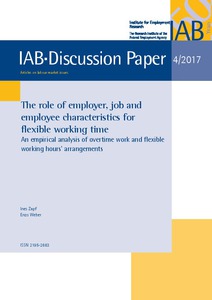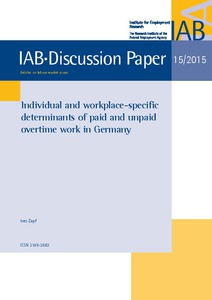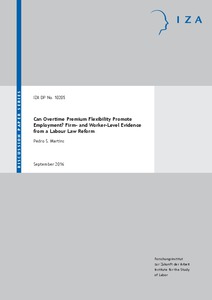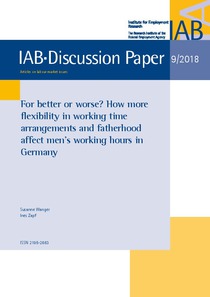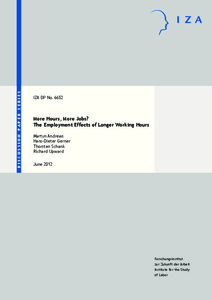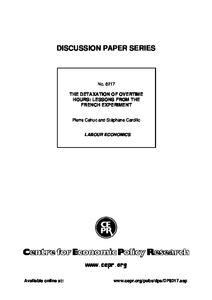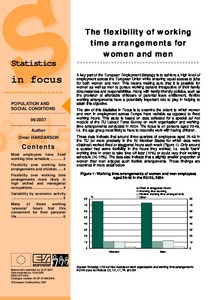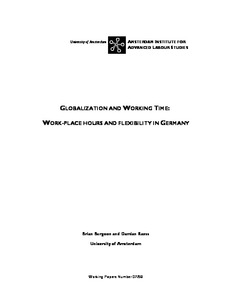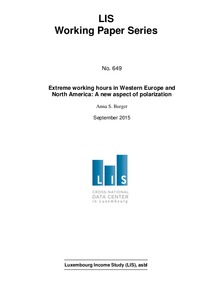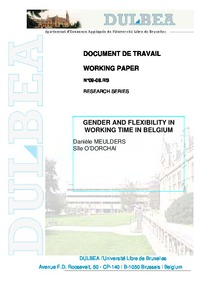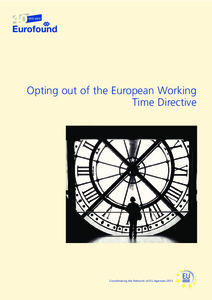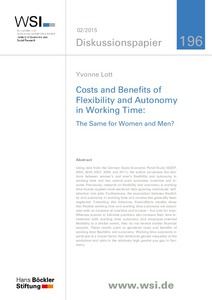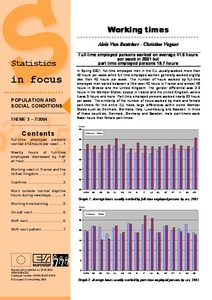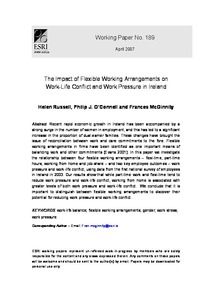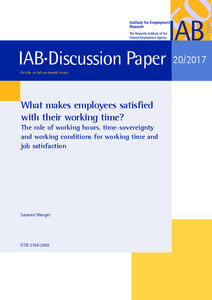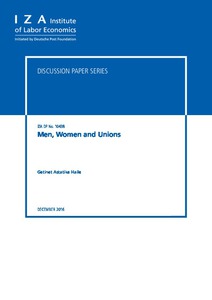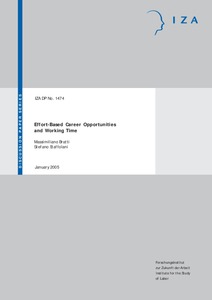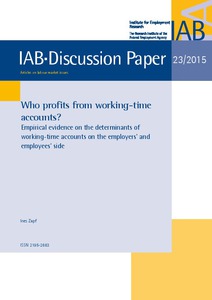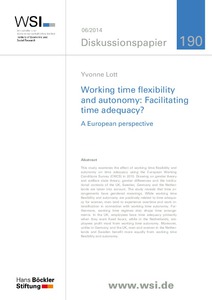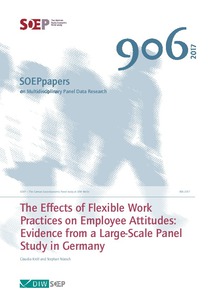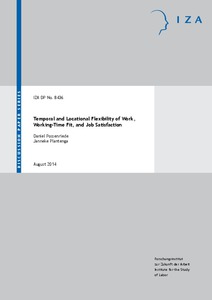The role of employer, job and employee characteristics for flexible working time. An empirical analysis of overtime work and flexible working hours' arrangements
"Modern working societies face the challenge to combine the establishments' with the employees' needs for working-time flexibility. The authors investigate the determinants of overtime and different working hours' arrangements using the German Linked Employer-Employee Study of th...
| Main Authors: | Zapf, Ines, Weber, Enzo |
|---|---|
| Institution: | ETUI-European Trade Union Institute |
| Format: | TEXT |
| Language: | English |
| Published: |
Nürnberg
2017
IAB |
| Subjects: | |
| Online Access: | https://www.labourline.org/KENTIKA-748112456639-The-role-of-employer,-job-and-.htm |
Similar Items
-
Individual and workplace-specific determinants of paid and unpaid overtime work in Germany
by: Zapf, Ines
Published: (2015) -
Flexible work time in Germany: do workers like it and how have employers exploited it over the cycle?
by: Hunt, Jennifer
Published: (2012) -
Can overtime premium flexibility promote employment? Firm- and worker-level evidence from a labour law reform
by: Martins, Pedro
Published: (2016) -
Flexibility of working time in Western Europe. Characteristics, impact, trade union positions.
Published: (1986) -
Working time and contract flexibility in the EU 1997.
by: Cranfield School of Management, Cranfield
Published: (1997)

